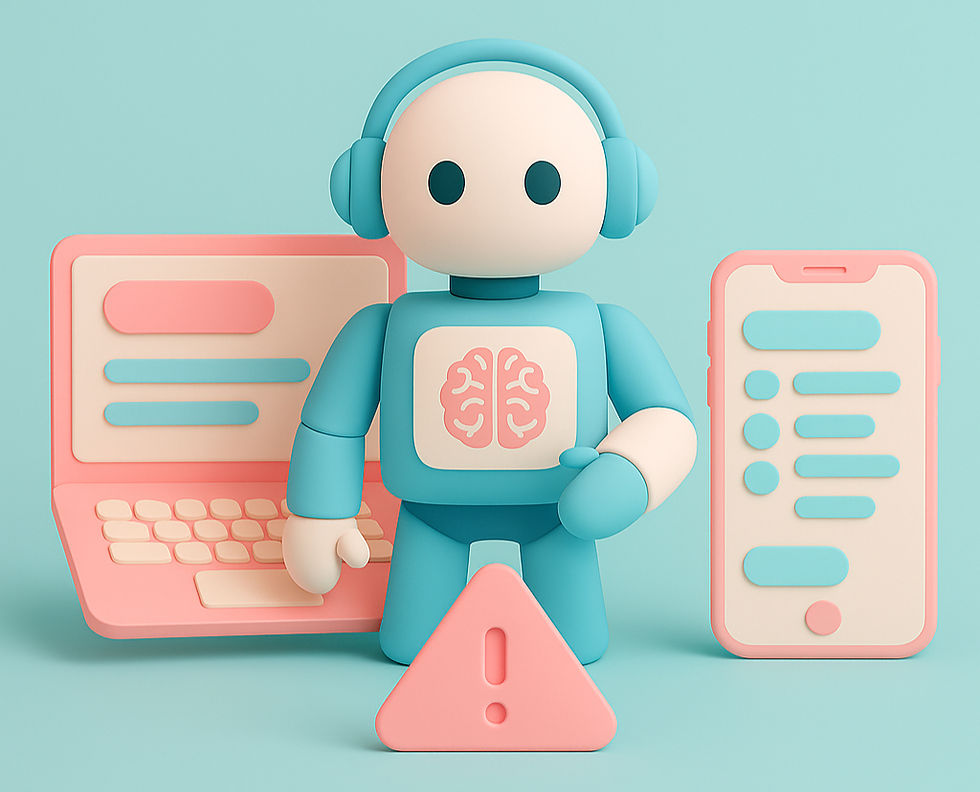The Quiet Reinvention of SaaS: How AI Is Transforming Products, Models, and Expectations
- Edson Pacheco

- Jul 24, 2025
- 3 min read

The way companies consume software is changing—and rapidly. Artificial intelligence, especially in its generative and operational forms, is challenging the traditional SaaS model on multiple fronts: from architecture to pricing, from value proposition to user experience.
This transformation doesn't happen explosively, but through continuous adjustments that, together, profoundly change the game. SaaS as we knew it is moving beyond being just a cloud delivery model to become an ecosystem of intelligent, adaptable, and increasingly results-oriented products.
From tool to co-pilot: the new role of software
Over the past decade, SaaS has established itself as the dominant model for enterprise software delivery. It offered scale, continuous updates, and predictable costs. But as AI becomes ubiquitous, the logic changes. What was once a static tool now becomes an active agent within the user's workflow.

Software is beginning to predict needs, suggest actions, and automate decisions. It's no longer just about doing what the user tells it to do—it's about anticipating what they need. This paradigm shift affects not only technology, but also product design, teams, and the value proposition.
Pressures on the traditional model
The classic subscription model—with fixed tiers and static features—starts to seem limited. With AI, it's possible to deliver value in a more granular and personalized way, which opens up space for models based on usage, inference, tokens, API consumption, or results achieved.
Furthermore, SaaS functions previously considered differentiating are beginning to be reproduced by autonomous agents external to the platforms — chaining tasks through APIs, accessing data in a contextualized way and operating without needing the original interface.
This disintermediation threatens software that doesn't update quickly. Competition won't just come from other SaaS solutions, but also from custom-built workflows or agent-based solutions.
New demands, new architectures
With AI at the heart of the operation, software needs to change its engineering:
Data First: Intelligent models require structured, up-to-date, and connected data—which requires reviewing pipelines, governance, and privacy policies.
Real-time and context: Software begins to function as living systems, responding to stimuli in real time and understanding the user's history.
Invisible interfaces: Interaction doesn't just occur through screens, but through natural language, voice commands, or even silent integrations with other systems.
The challenge is not just adopting AI, but transforming the product so that it is native—not just cosmetic.
What changes for customers
On the customer side, expectations are also shifting. Software that simply "does what it's always done" is no longer sufficient. Technology is expected to understand context, personalize journeys, and deliver intelligence—not just functionality.
This new consumer:
Switch suppliers faster when you find more adaptive solutions;
It requires explainability, ethics and control over what AI decides;
You expect native integrations with your workflows and don't want “yet another platform” to manage.
In this environment, SaaS companies will need to compete not only on features, but also on relevance, fluidity, and the ability to amplify user performance.
Paths to climb intelligently
The future of SaaS isn't incompatible with AI—but it requires conscious reinvention. Some strategic courses of action are:
Redesign products with AI at the core , not on the surface;
Reevaluate pricing models, incorporating logic based on value delivered;
Include intelligent agents in flows, making use more dynamic and automated;
Strengthen integrations via APIs , preparing the software to operate as part of a broader ecosystem;
Invest in sectoral specialization , where generic AI encounters limitations and domain knowledge becomes a differentiator.
Companies that can align their engineering, design, and business models with this new landscape will have an advantage that traditional competitors will find difficult to achieve.
Conclusion
AI isn't killing SaaS. It's giving it a new form. A more fluid, contextual, interactive, and intelligent form.
The transformation will not be uniform. Some products will become platforms, others agents, and others will disappear. But the common thread will be the ability to deliver value in a more adaptive, connected, and results-oriented way.
For industry leaders, the challenge is clear: to rethink their solutions with the same boldness with which, years ago, SaaS challenged the on-premise model.
Disruption, right now, isn't a threat—it's an opportunity for anyone willing to lead the next wave of reinvention.
References
Bain & Company – Will AI Disrupt SaaS?
McKinsey & Company – The Economic Potential of Generative AI: The Next Productivity Frontier (2023)
Accenture – AI-Powered SaaS: The Next Generation of Intelligent Software (2024)
ThoughtWorks – Digital Fluency Model: SaaS and Intelligent Agents (2023)
BCG (Boston Consulting Group) – How SaaS Providers Can Lead in the Age of AI (2024)
Harvard Business Review – How Generative AI Changes Software UX (2023)
MIT Sloan Management Review – The Platform Shift: SaaS, APIs and Intelligent Agents (2023)



Comments